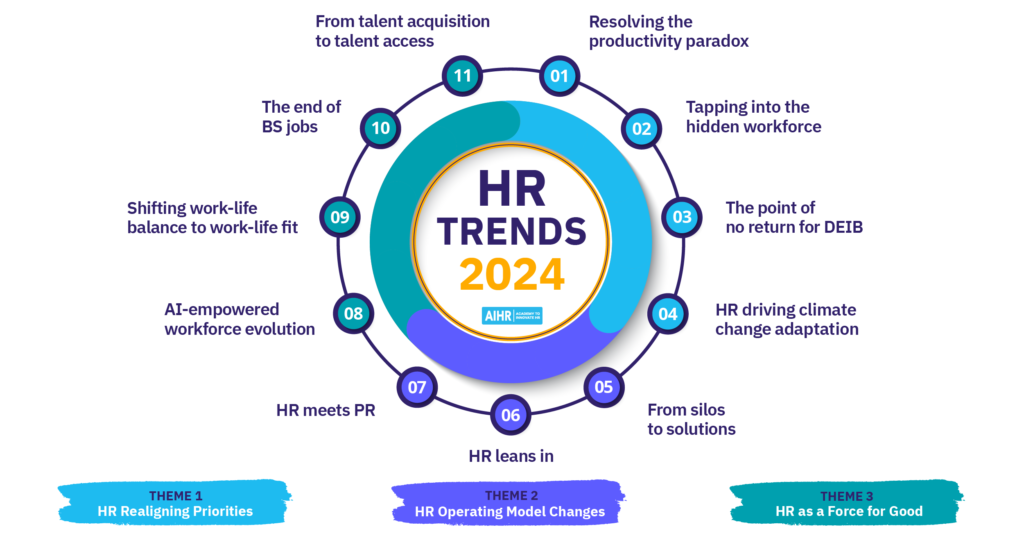Conferences, often seen as the epicenters of professional learning and networking, are also crucial for understanding and forecasting job market trends. In a rapidly changing work landscape, they offer valuable insights into emerging industries, technological advancements, and evolving skill requirements. This 1000-word article explores how conferences illuminate upcoming job market trends, aiding professionals and businesses in staying ahead of the curve.
Introduction
Contents
- 1 Introduction
- 2 The Role of Conferences in Highlighting Job Market Trends
- 3 Identifying Emerging Industries and Job Roles
- 4 Skill Development and Continuing Education
- 5 The Impact of Global Trends on the Job Market
- 6 Networking and Career Opportunities
- 7 The Role of Conferences in Shaping Educational Curricula
- 8 Challenges and Criticisms
- 9 Adapting to Virtual Formats
- 10 Conclusion
- 11 Author
In today’s fast-paced and ever-evolving job market, staying informed about the latest trends is vital for career advancement and business success. Conferences play a pivotal role in this regard. They bring together industry leaders, experts, and professionals to discuss current issues, innovations, and future directions. These gatherings are not just about danatoto networking and knowledge sharing; they are a barometer for upcoming job market shifts.
The Role of Conferences in Highlighting Job Market Trends
Gathering of Industry Experts
Conferences typically feature talks, panels, and workshops led by industry leaders and experts. These sessions often focus on the latest developments and future projections in various fields, offering attendees a glimpse into the evolving job market.
Showcasing Technological Innovations
With technology rapidly changing how we work, conferences often showcase the latest technological advancements. This includes emerging tools, software, and technologies that are likely to impact job requirements and market demands.
Networking Opportunities
Networking at conferences allows attendees to engage with peers and leaders from various industries. These interactions can provide insider perspectives on industry trends, skills in demand, and potential job opportunities.
Identifying Emerging Industries and Job Roles
Spotlight on Emerging Sectors
Conferences frequently highlight emerging sectors that are poised for growth. Attendees can learn about new industries and the types of job roles they are likely to create.
Evolving Job Roles
Panel discussions and keynote speeches often address how certain job roles are evolving. This can include the integration of AI and automation in various fields, changes in digital marketing strategies, or the rise of remote work.
Skill Development and Continuing Education
Workshops and Training Sessions
Many conferences offer workshops and training sessions focused on skill development. These sessions can provide insights into the skills that will be in demand in the coming years.
Certifications and Professional Development
Conferences sometimes offer certifications or professional development credits that can enhance a resume. These credentials often align with the latest industry standards and job market requirements.
The Impact of Global Trends on the Job Market
Globalization and Diversity
Conferences with a global focus shed light on the impact of globalization on the job market. Discussions often revolve around managing diverse workforces, cultural competency, and international business strategies.
With an increasing focus on sustainability, conferences often highlight jobs related to environmental conservation, sustainable business practices, and corporate social responsibility.
Networking and Career Opportunities
Connecting with Potential Employers
Conferences often attract recruiters and company representatives looking to hire. For job seekers, this provides a chance to connect with potential employers and learn about upcoming job openings.
Building a Professional Network
Building a professional network at conferences can lead to future job opportunities. Many jobs are filled through connections and referrals, making networking an essential aspect of career advancement.
The Role of Conferences in Shaping Educational Curricula
Feedback Loop with Educational Institutions
Conferences serve as a feedback loop between industry and academia. Insights gained from these events can influence educational curricula, ensuring that they align with the evolving job market.
Bridging the Skills Gap
By highlighting the latest industry trends and skills in demand, conferences can help educational institutions bridge the skills gap, preparing students for the future job market.
Challenges and Criticisms
Access and Inclusivity
One criticism of conferences is their accessibility. High registration fees and travel costs can limit participation, potentially excluding diverse perspectives and insights.
Overemphasis on Certain Trends
Conferences might sometimes overemphasize certain trends or industries, potentially skewing a holistic view of the job market. Attendees need to critically assess the information presented.
Adapting to Virtual Formats
The Rise of Virtual Conferences
The COVID-19 pandemic has led to the rise of virtual conferences. These digital events continue to offer insights into job market trends, with the added benefit of wider accessibility.
Networking in a Digital Era
While virtual conferences offer many advantages, they present challenges in replicating the networking opportunities of in-person events. However, they often provide innovative digital networking platforms.
Conclusion
Conferences play an indispensable role in highlighting and shaping upcoming job market trends. They offer a platform for learning about emerging industries, technological advancements, and evolving skill sets. For professionals, attending conferences is not just a means of staying informed but a strategic move to anticipate and prepare for future career opportunities. As the job market continues to evolve, conferences – whether in-person or virtual – will remain key indicators of the direction in which various industries are heading. By actively participating in these events, professionals and businesses can gain the insights needed to navigate the changing landscape of employment and remain competitive in their respective fields.


















